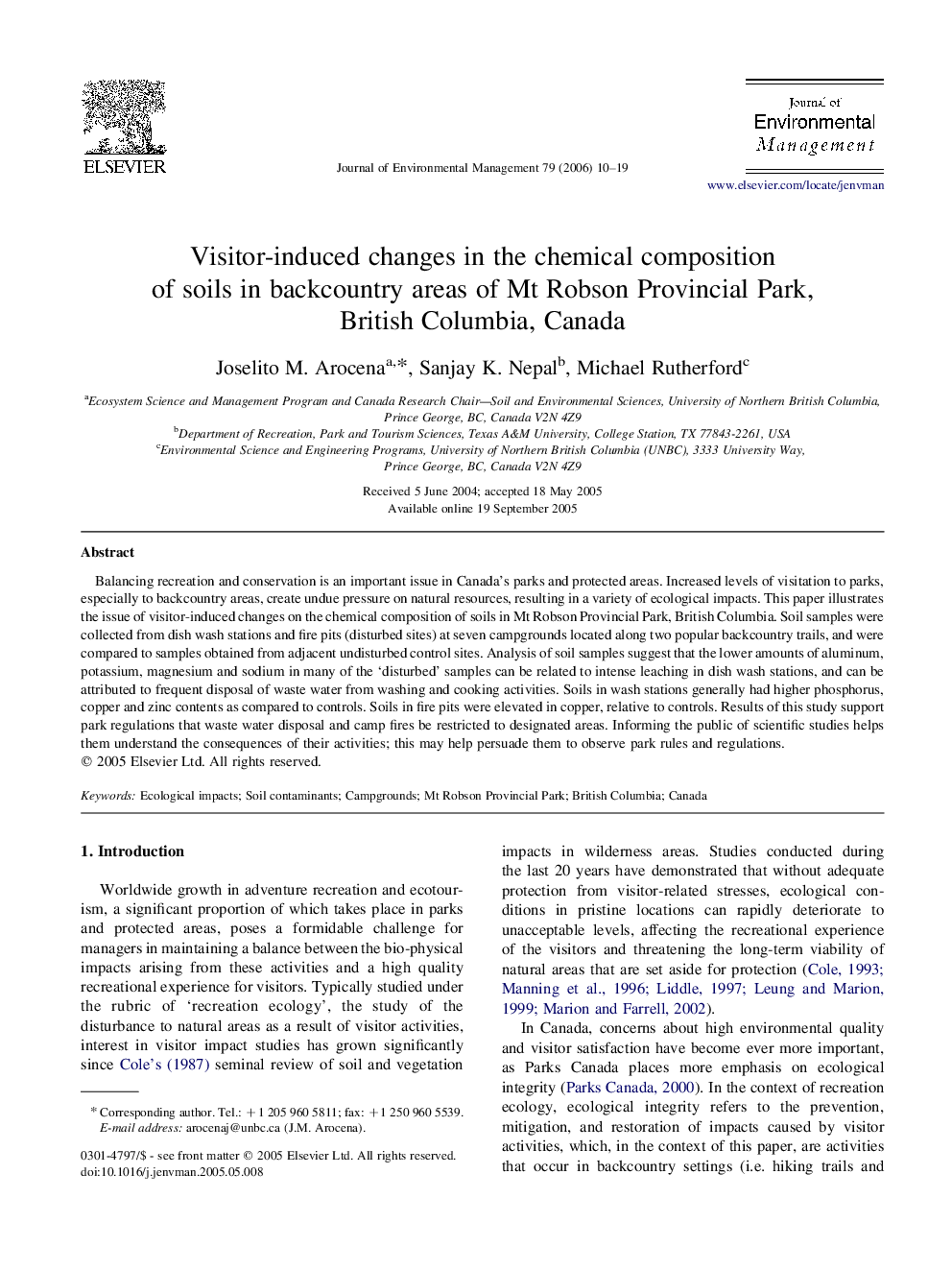| Article ID | Journal | Published Year | Pages | File Type |
|---|---|---|---|---|
| 1058389 | Journal of Environmental Management | 2006 | 10 Pages |
Balancing recreation and conservation is an important issue in Canada's parks and protected areas. Increased levels of visitation to parks, especially to backcountry areas, create undue pressure on natural resources, resulting in a variety of ecological impacts. This paper illustrates the issue of visitor-induced changes on the chemical composition of soils in Mt Robson Provincial Park, British Columbia. Soil samples were collected from dish wash stations and fire pits (disturbed sites) at seven campgrounds located along two popular backcountry trails, and were compared to samples obtained from adjacent undisturbed control sites. Analysis of soil samples suggest that the lower amounts of aluminum, potassium, magnesium and sodium in many of the ‘disturbed’ samples can be related to intense leaching in dish wash stations, and can be attributed to frequent disposal of waste water from washing and cooking activities. Soils in wash stations generally had higher phosphorus, copper and zinc contents as compared to controls. Soils in fire pits were elevated in copper, relative to controls. Results of this study support park regulations that waste water disposal and camp fires be restricted to designated areas. Informing the public of scientific studies helps them understand the consequences of their activities; this may help persuade them to observe park rules and regulations.
